Natanel died living his dream: defending Israel as an IDF soldier. He was only 20 years old.
The youngest of five children, Natanel, or Nat as his family called him, moved from London to Tel Aviv when he was 18, just old enough to volunteer in the Israeli Defense Force. Nat embodied the Spirit of the IDF: Patriotism, commitment, and devotion to the State of Israel—a democratic state that is the national home of the Jewish people—and to its citizens and residents.
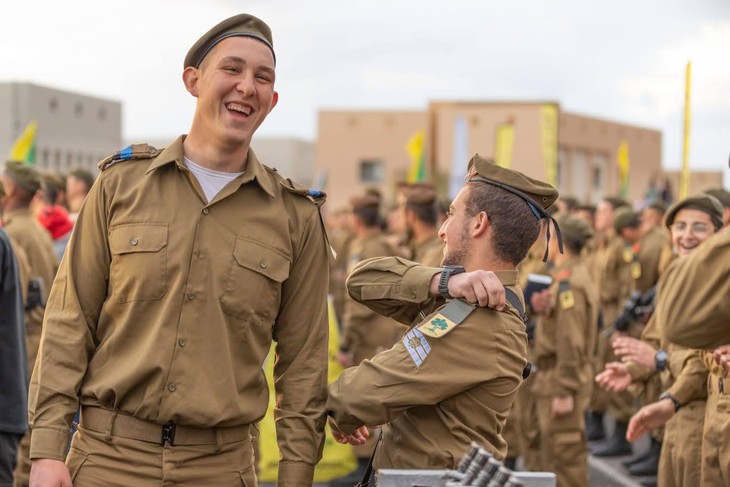
Israel’s national airline, El Al, maintains the same spirit. It is one of the only airlines continuing routes in and out of the country, delivering tens of thousands of people to defend their homeland with Nat and his comrades.
For the first time in 40 years: El Al Israel airlines will operate flights on Shabbat to bring home soldiers and volunteers from around the world.
Terrorists – you will never have this spirit 🇮🇱 pic.twitter.com/RM1yuTmI3k
— Yael Bar tur (@yaelbt) October 12, 2023
It’s like my friend Geoff said of Jews traveling to Israel to help, “[W]hen your people are in mortal danger, it’s a natural sort of human instinct to want to go and protect them and, if necessary, die with them. It’s not really an act of bravery or anything exceptional.” Loyal, humble, brave—all words to describe people like Nat and the 1,400 killed, 4,600 injured, and 203 taken hostage by Hamas.
Related: War Brings Profit
“Nat’s selfless kindness is so rare,” said his oldest sister Gaby. “I aspire to be as kind as him.” She told me that Natanel was a very involved uncle for her two daughters, ages 5 and 2, spending as much time as he could with them. “He always made the time and effort to see his nieces—coming through the door, lifting up the girls, bringing gifts and surprises even when he only had one day off.”
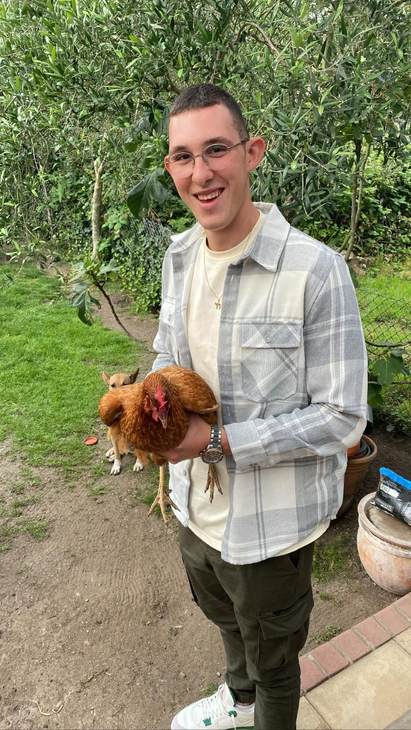
How do you tell a 5-year-old her uncle, who would spend his Rosh Hashanah stipend buying her cool new sneakers, who would babysit and pick her up from daycare, died? How do you help this child understand that Nat is not in pain, that he’s okay, but “we’re not going to see him anymore” because the monsters of Hamas do not believe the Jews have a right to exist? When Gaby talked with her daughter, the little girl responded, “But who’s going to DJ at my party when I’m six?”
Natanel had a passion for music, working late-night off-hours in one of Tel Aviv’s most famous clubs. He had promised to DJ his niece’s birthday party. Hamas robbed her of that gift and lifelong memory. Hamas also robbed Nat’s family and friends of laying his body to rest.
During Gaby’s eulogy at Nat’s funeral, mourners dove to the ground and covered their heads because Hamas missiles prompted air raid sirens to shriek their warnings of death and destruction. There are shelters all over Israel, but not at the cemetery.
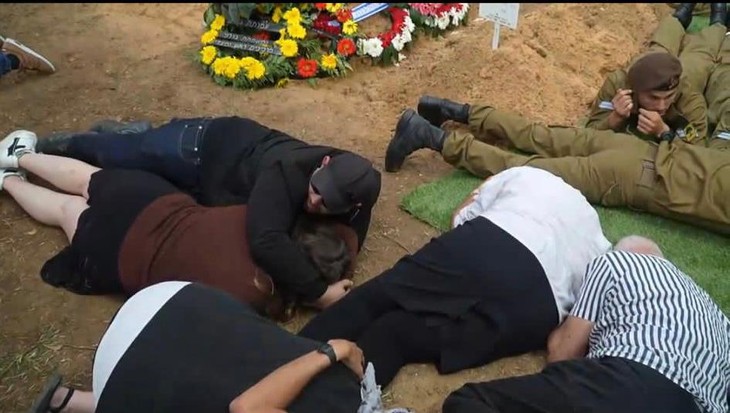
A heartbroken little girl. Mourners who don’t get the chance to properly say goodbye. A mother and father who will not get another phone call from their son. These are the silent death toll numbers in Israel, and they stand behind every one of the 1,400 people killed by Hamas in the last two weeks.
“He always put a smile on everyone’s face and wanted to make them happy,” Gaby said in her eulogy. “Not only for his nieces but for his friends, too, whether it was through his big cheeky smile, through music, or through his jokes and generosity.”
Is this the cost of war? No, this is the price of being Jewish.
#ReleaseTheHostages #BringThemBack pic.twitter.com/1x8MekzkKK
— Gal Gadot (@GalGadot) October 20, 2023
Schools are closed. Parents are afraid to take their children to the park. The Iron Dome is brilliant, but it cannot defend them against infiltrators. “Hamas is just a barbaric terror organization and they aim to destroy the Jews,” Gaby said.
One of the most beautiful observances and sacred traditions of Judaism is Shabbat. From sunset Friday to sunset Saturday, Jews observe the sabbath in their homes, communities, and synagogues. This is more than a day off; it is a recurring gift from the Almighty to remember and observe. Songs, prayers, study, togetherness, and meals worthy of the word “feast” are all part of Shabbat.
Now, imagine Shabbat around the world with empty seats because Hamas is determined to eliminate a mother, father, daughter, son, grandbaby, best friend, or spouse because they sit around this table. Notice the high chairs and sippy cups.
Outside the Tel Aviv museum, a Shabbat table is set for 203 hostages kidnapped by Hamas to Gaza.
Please watch the full length of the video, and try to imagine the whole world behind each one of those empty seats. pic.twitter.com/8CzS0p3WKe
— Yael Bar tur (@yaelbt) October 20, 2023
“I still can’t believe my brother is gone.” How many people have said that in the last two weeks? This war has raged for two weeks, but it feels like two years, even longer for those whose loved ones have died. When someone we love dies, part of us dies with them, the hope that we would never be without them and the joy ignited from the way they made us feel. When you see death tolls, remember that these people did not die alone—a piece of everyone close to them died, too.
Tablet Magazine had a lovely article in 2021 about the Jewish consolation, “May their memory be a blessing.” In it, author Sharrona Pearl explains (and I emphasize):
For Jews, death has always been not only deeply individual but also public and communal. When someone dies, the entire community responds. Jews don’t do death, or ritual, alone. The seven mourning days of shivaare exhausting, but they are also a relief, not least because everyone knows what they are supposed to do. The scripts have already been written.
Official death tolls are not accurate – they are not high enough. It is my hope, dear readers, that we celebrate Natanel’s life that was full of beauty, faithfulness, and generosity, that we mourn for a world without Natanel in it, and that we remember his sister Gaby, her children, Nat’s four brothers and sisters, his parents, his nieces, nephews, friends, and even the club-goers who will no longer experience this DJ’s art.
“I hope we can all use these stories to inspire us to treat each other like Natanel treated others and honor our parents how Natanel honored his. May his memory be a blessing and his precious soul reach heaven quickly.”
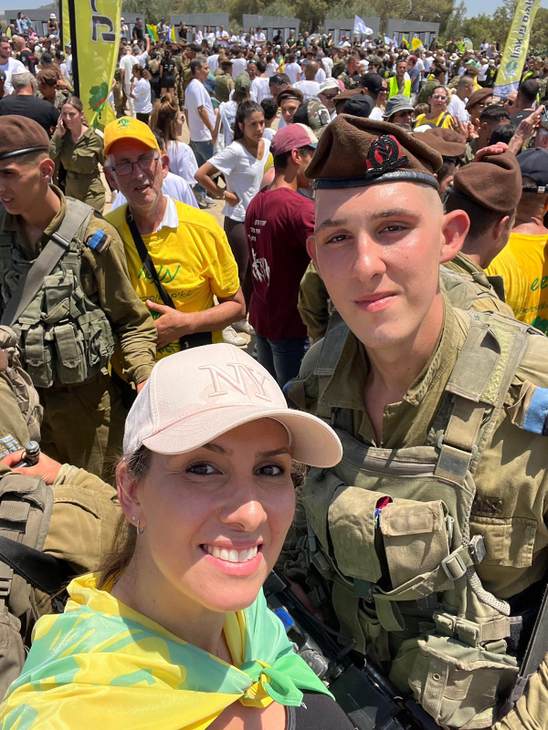


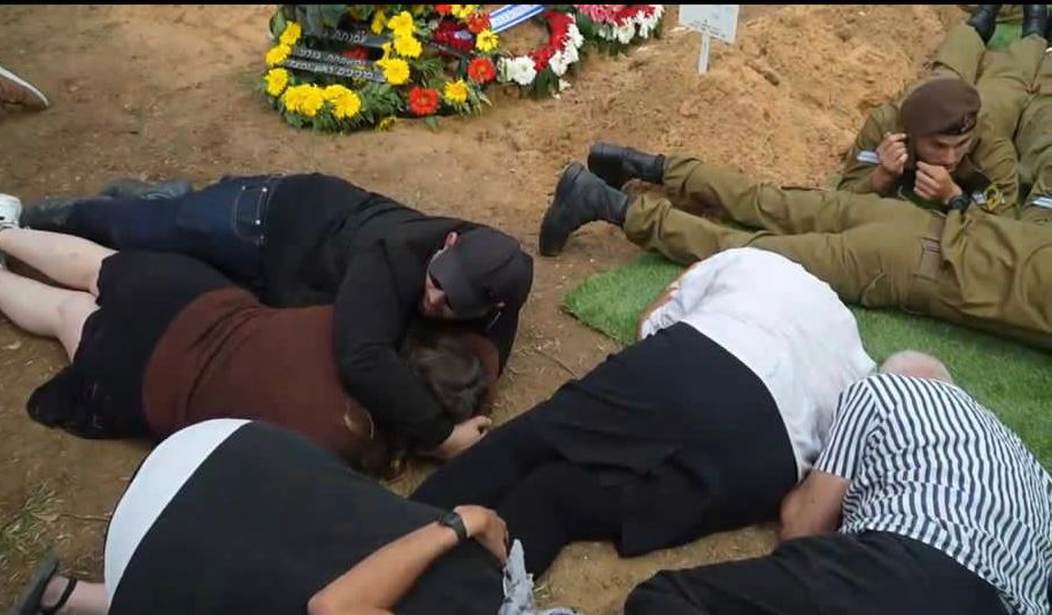






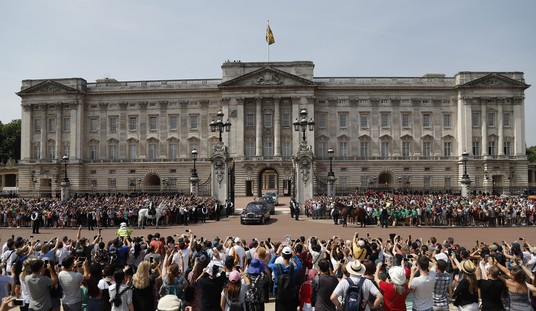
Join the conversation as a VIP Member